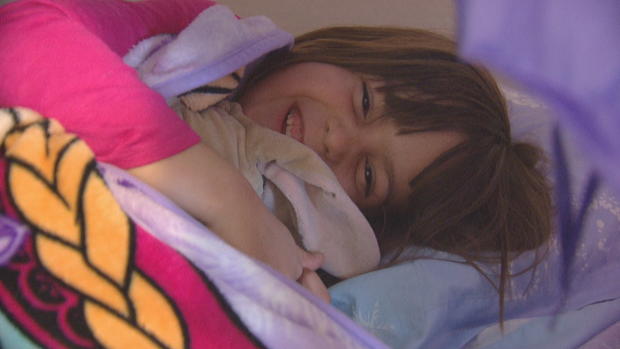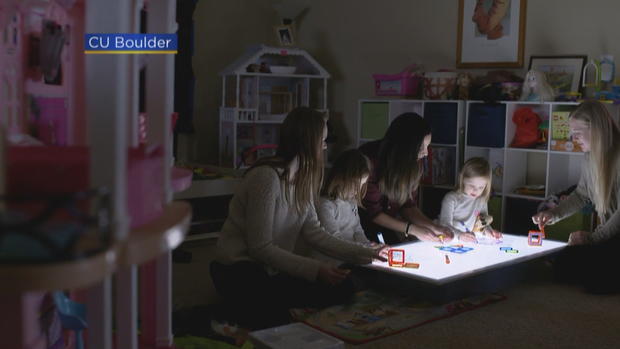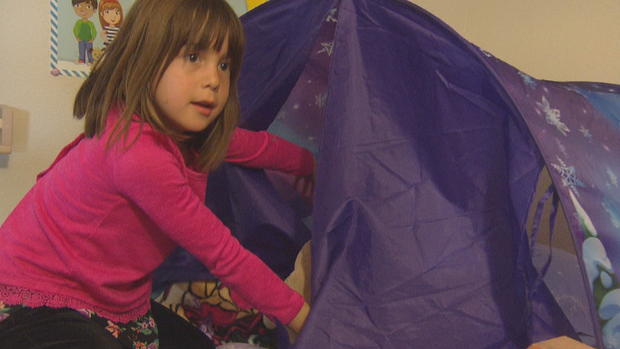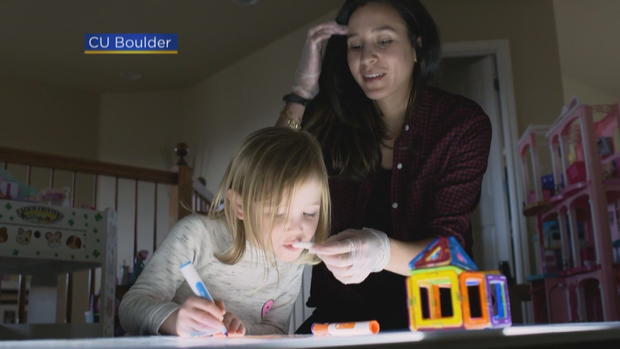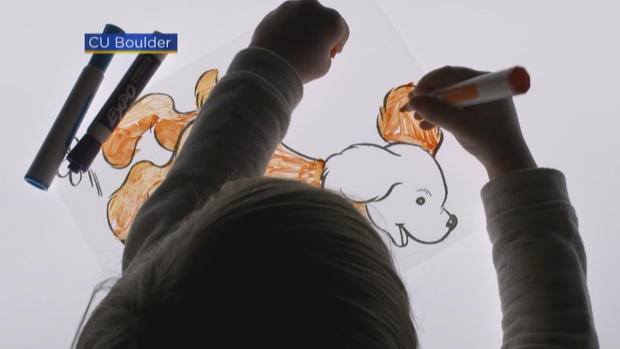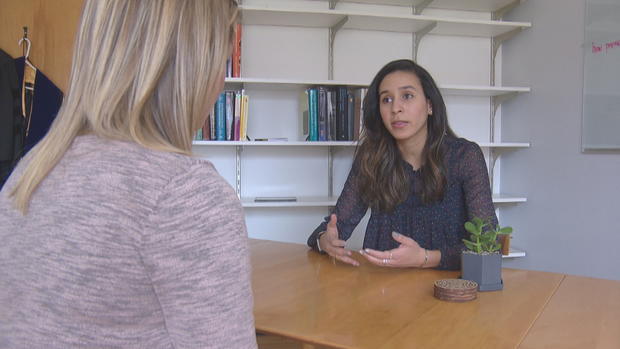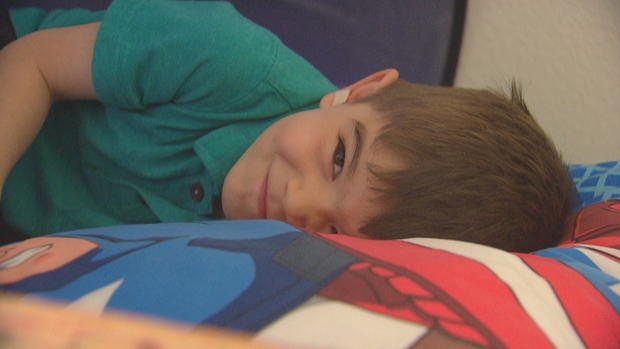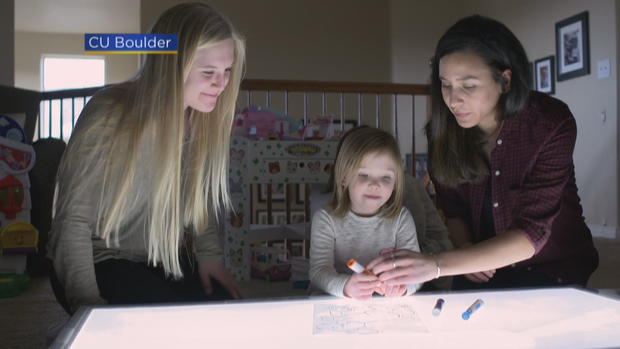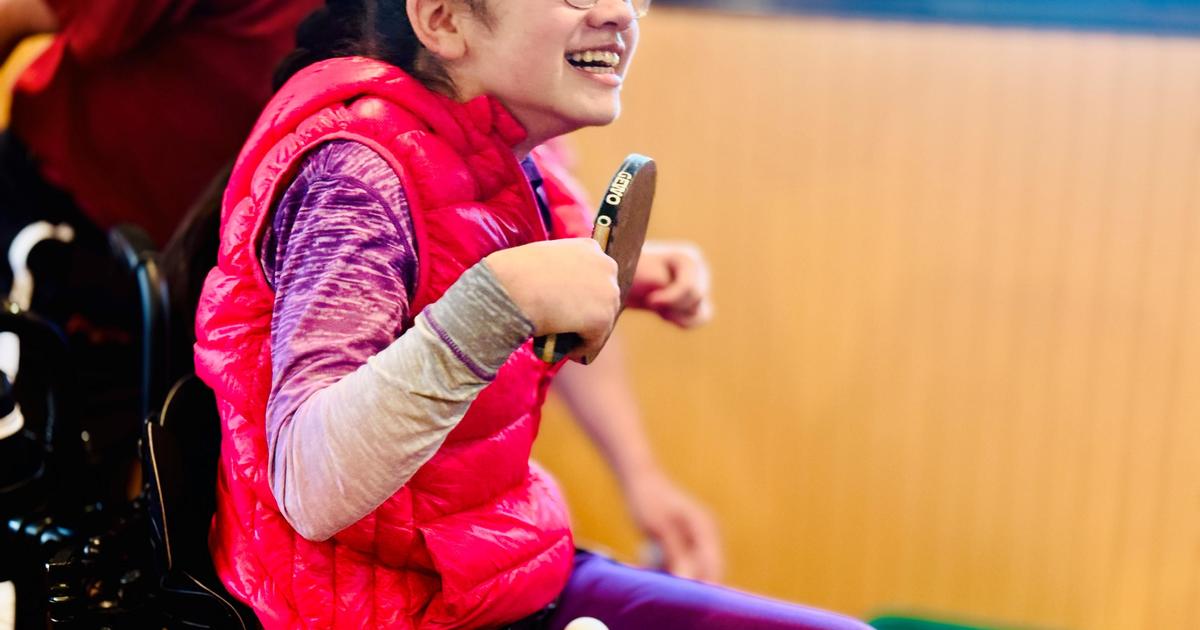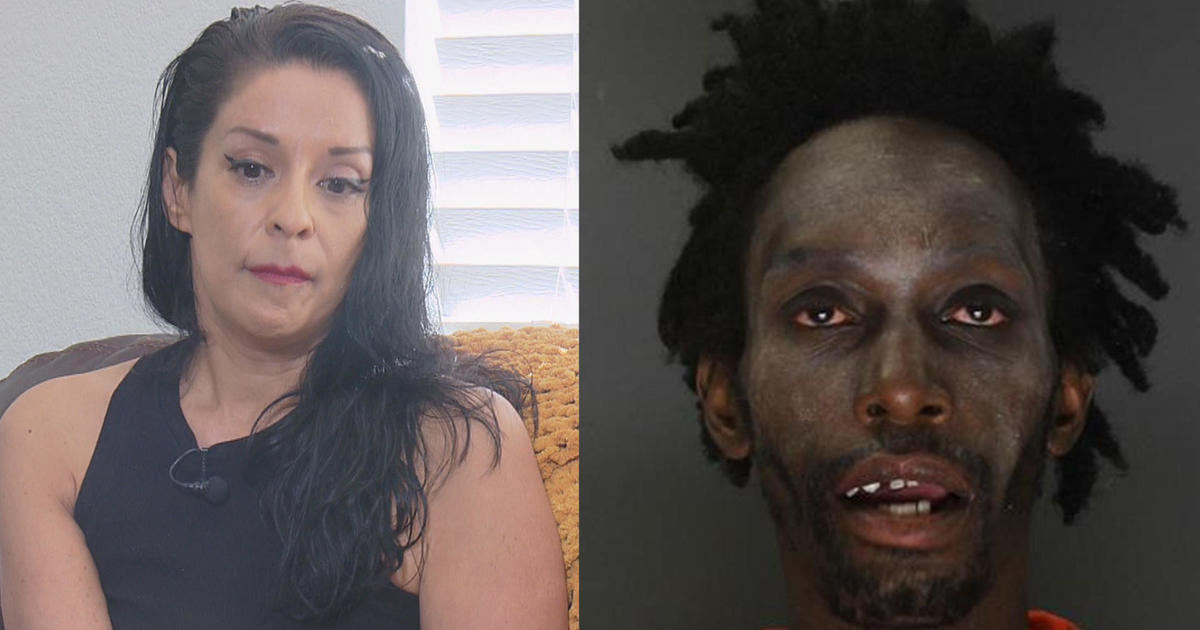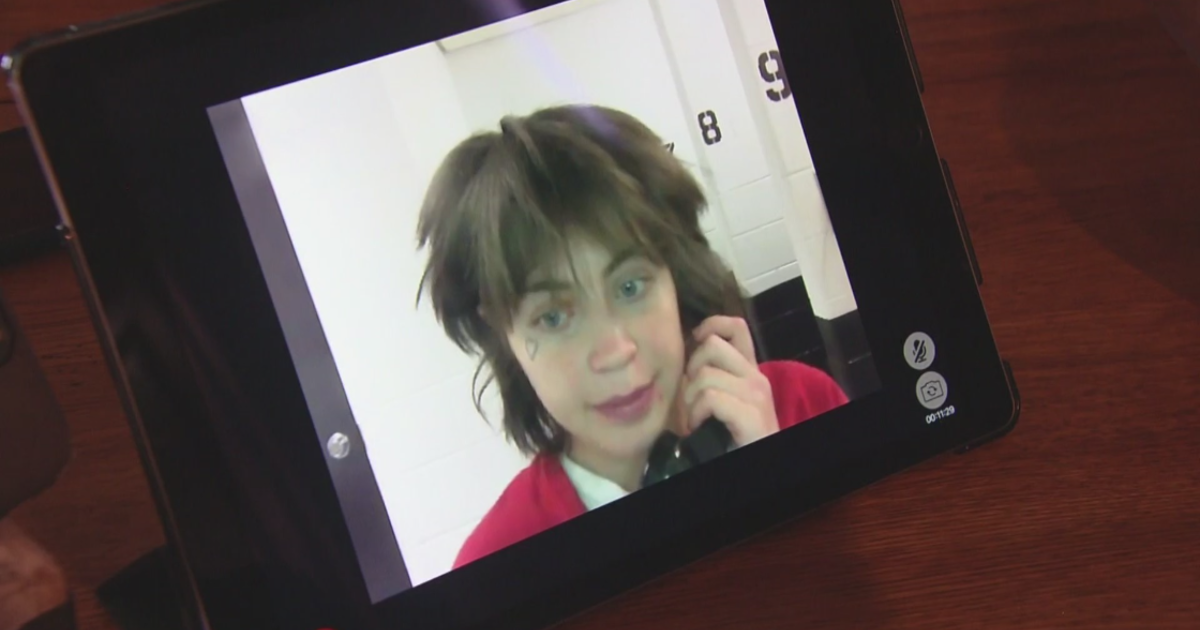Trouble Getting Your Toddler To Sleep? Dim The Lights Hours Before Bed
BOULDER, Colo. (CBS4)- Is your toddler having trouble counting sheep? Dim the lights. No, not just at bedtime – long before you tuck them in.
That's at least what researchers at the University of Colorado Boulder are suggesting after a first-of-its-kind study revealed preschoolers are losing upwards of 90 percent of a sleep-promoting hormone before bed.
"We know from a lot of research in adults that humans are very sensitive to the effects of light, specifically in the evening," Lameese Akacem, the study's lead author and CU Boulder instructor in the Sleep and Development lab, said. "Specifically light can stop the secretion of the hormone melatonin, the hormone that helps us fall asleep at night. These studies have not yet been done in young children."
For the study, Akacem and her team enrolled 10 healthy children ages 3 to 5 years in a seven-day protocol. During the first five days, the children followed a strict bedtime schedule to normalize their body clocks and settle into a pattern. That allowed their melatonin levels to go up at the same time each evening.
On the sixth day, the team visited each child's home and created a dim-light environment -- or what researchers playfully referred to as "the cave." They covered windows and installed low-wattage bulbs in existing lights. That, Akacem explained, ensured all the children were exposed to the same amount of light before samples were taken.
"They made me chew on something," 5-year-old Isabella Lofquist, one of the study participants, told CBS4's Kelly Werthmann.
That 'something' was a piece of cotton which allowed researchers to gather saliva samples to determine melatonin levels at various times.
The following evening, after spending a day in "the cave," children played with the researchers – or "sleep fairies" as they kids called them -- on top a light table, emitting 1,000 lux of light (which is brighter than what's emitted from a phone or tablet) for an hour. Akacem explained that mimicked a situation when a child is in a brightly lit room and then immediately goes to bed after the parents shut off the lights.
"They had magnets so I could build things," Isabella said. "All of them were really nice."
Those nice sleep fairies compared the collected samples and determined light definitely has a big impact on children at night. Melatonin levels were 88 percent lower after bright light exposure and those levels remained low at least 50 minutes after the light was turned off.
"In the hour before bedtime, dimming the lights would be a really great idea for parents to do," Akacem said. "That can help minimize the effects of light on melatonin, both in that moment and after the lights are out and the kids are trying to fall asleep."
After watching her daughter take part in the study and learning the results, Isabella's mom has made some big changes to her kids' bedtime routine.
"We used to do a little bit more Kindles and watching movies and things at night and we don't do that now," Heather Lofquist said. "Now we just read books, lay down together and have actually started thinking a lot more about just keeping the lights off in parts of the house. It really pays dividends to kind of limit light, especially after dinner. Isabella is more alert in the morning. She's more likely to wake up on her own and on time for school and not be as grumpy."
Researchers were surprised with how low melatonin levels dropped, so, thanks to a $2.4 million grant from the National Institutes of Health, they're now looking at the issue using different light intensities – like the brightness of tablets and smartphones.
LINK: CU Research Published In The Journal Physiological Reports
Kelly Werthmann joined the CBS4 team as the morning reporter in 2012. After serving as weekend morning anchor, Kelly is now Covering Colorado First for CBS4 News at 10. Connect with Kelly on Facebook or follow her on Twitter @KellyCBS4.
